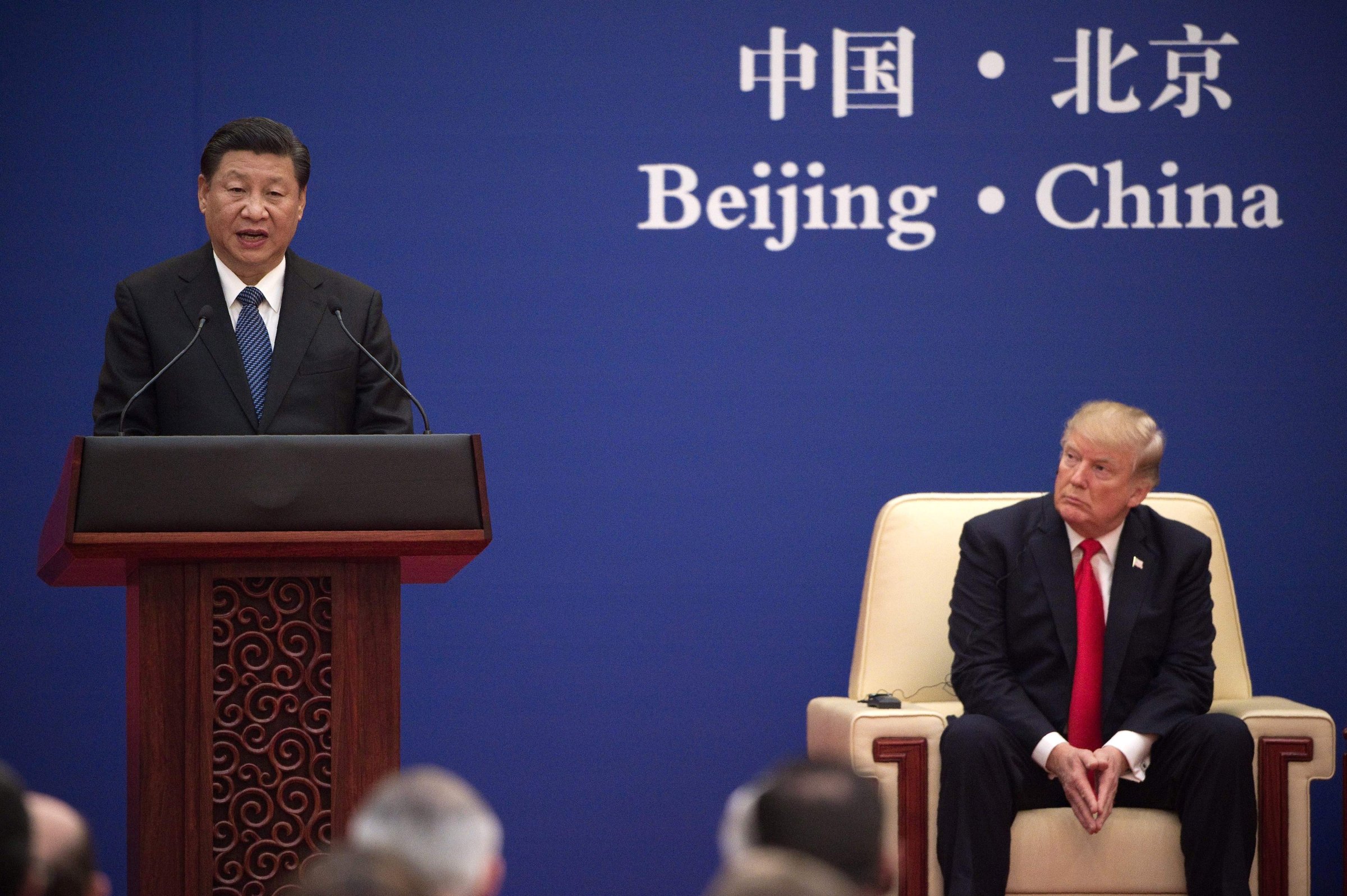
Just days before President Donald Trump’s inauguration, Chinese President Xi Jinping told the global elite gathered in Davos, Switzerland, that China would now take center stage promoting issues like climate change and globalization.
Now, 14 months later, China faces a major test of whether it will make good on that promise.
As Trump has pulled out of deals like the Trans-Pacific Partnership and the Paris Agreement on climate change, China has had the chance to flex its diplomatic muscle, while his imposition of new tariffs clearly aimed at China have given it an opportunity to rise above and seek to defuse tensions in order to avoid a damaging trade war.
But experts say China is going to need to start following through to truly become the world player it has promised it would be.
“It is a time for action as opposed to a time for rhetorical commitments,” says Nicholas Consonery, director of China macro research at Rhodium Group, a research firm. “The commitments are important because they potentially affect the direction of policy, but what we need to see now is action.”
The opening for China comes as the U.S. steps back from what has been a decades long commitment to open markets, free trade and globalization. Last week, the White House announced sweeping tariffs that target China’s aviation, technology and machinery sectors following an investigation that determined that China engaged in unfair practices to take advantage of U.S. intellectual property. That move followed earlier tariffs on steel, aluminum, solar panels and washing machines.
For China to position itself as a global defender of free trade would mean following through on a number of trade policy measures that the country announced in recent months including a reduction of import tariffs on a wide range of consumer goods, opening of the financial services industry and intellectual property protections. Analysis from the Rhodium Group predicted that the coming months would be “stormy” as Beijing decides whether to pursue further reforms or escalate a trade war.
Which path China will chart remains unclear. The response from Beijing has been fairly muted thus far and China has avoided launching an all-out trade war. In the days following Trump’s announcement of $60 billion in tariffs targeting a range of Chinese goods, China announced $3 billion in tariffs on American products, a small fraction of the U.S. penalties. And since then the U.S. and China have engaged in high-level, behind-the-scenes talks to ease trade tensions.
That fits with Xi’s public message in Davos and elsewhere. “Pursuing protectionism is like locking oneself in a dark room,” he said. “While wind and rain may be kept outside, that dark room will also block light and air. No one will emerge as a winner in a trade war.”
Still, deep skepticism remains for those who have seen China simultaneously use globalization to its advantage while continuing some of its own protectionist policies. For one, the Office of the U.S. Trade Representative has until early April to finalize tariffs that resulted from the intellectual property investigation and China may be waiting until a final determination to respond.
“I don’t think anyone should be too comfortable with China’s muted response thus far,” says Ron Kirk, former U.S. Trade Representative and now a partner at the law firm Gibson, Dunn and Crutcher, noting that in the past Beijing has responded to tariffs in kind.
But China has shown a willingness to buck its historic pattern of behavior to take the global mantle of leadership — when it suits the national interest. The country joined the World Trade Organization in 2001, committing itself to opening its economy.
More recently, on climate change, Xi completely reversed his country’s stance. His predecessors remained unwilling to commit to addressing the issue and even scuttled signifiant global efforts, but ahead of negations on the Paris Agreement Xi committed to introduce a nationwide cap-and-trade system and peak the country’s greenhouse gas emissions.
Working with President Obama on climate change played a key role in Xi’s work on global warming, but since Obama left office Xi has responded to Trump’s rejection of the issue by doubling down. China has offered funding for climate change projects across the globe and recommitted to the Paris Agreement as Trump does the exact opposite.
Whatever China does on trade, climate change or any other issue will fit into a plan to further the country’s long-term national interest, not to advance western norms or concerns. Taking the mantle of leadership on issues like climate change and trade from the U.S. could help do just that.
Kirk points to Xi’s recent move to consolidate power and set himself up to be president for life as a reason to remain skeptical. “I don’t believe he did that because he intends on charting a more moderate conciliatory posture,” he says.
More Must-Reads from TIME
- Cybersecurity Experts Are Sounding the Alarm on DOGE
- Meet the 2025 Women of the Year
- The Harsh Truth About Disability Inclusion
- Why Do More Young Adults Have Cancer?
- Colman Domingo Leads With Radical Love
- How to Get Better at Doing Things Alone
- Michelle Zauner Stares Down the Darkness
Write to Justin Worland at justin.worland@time.com